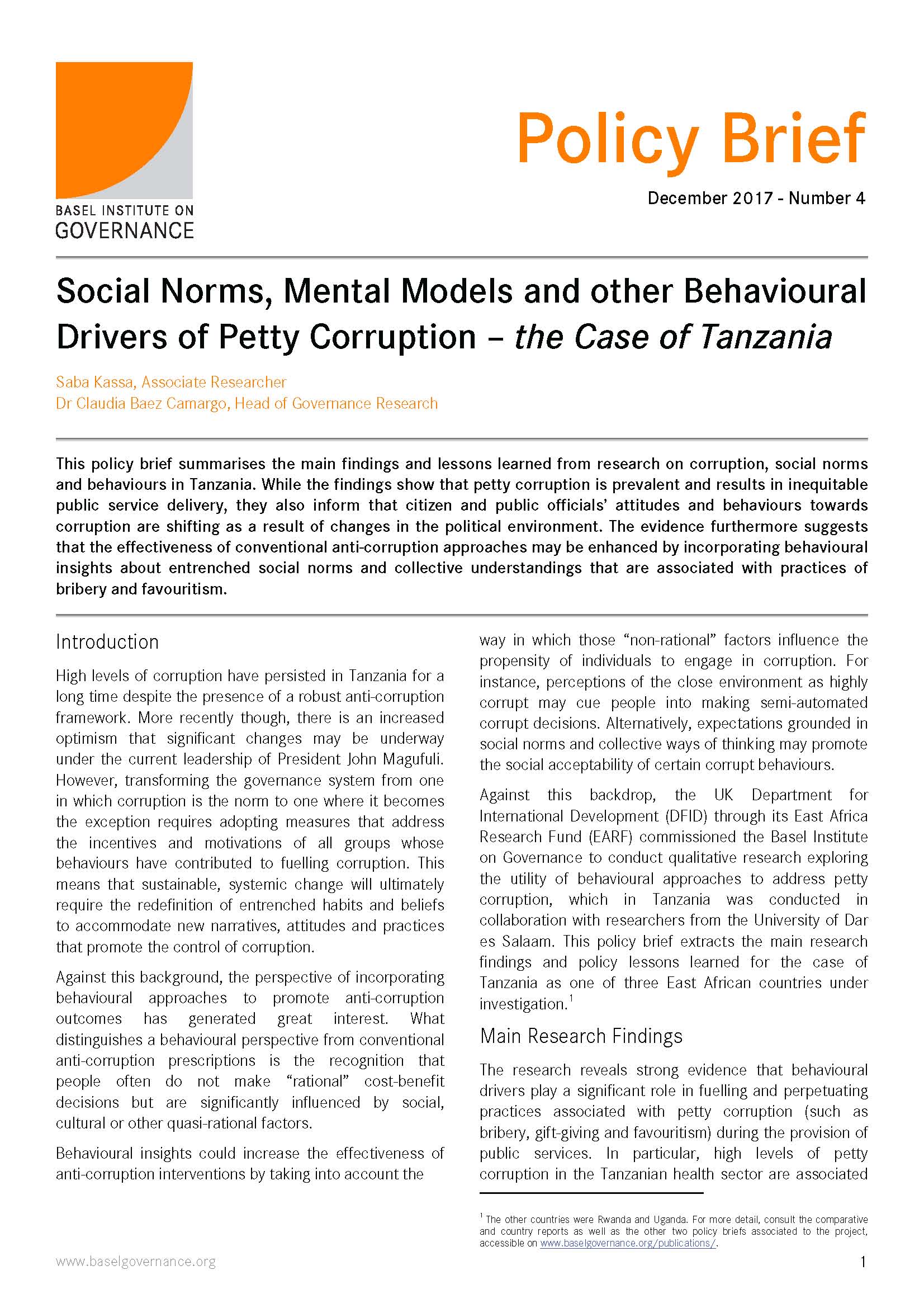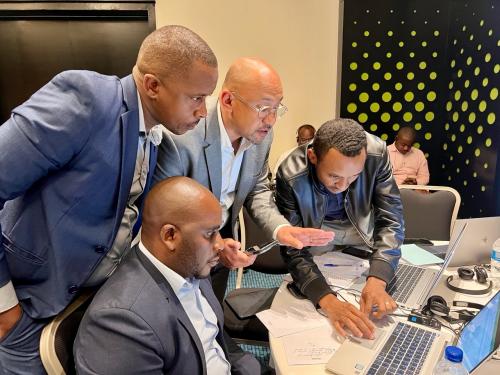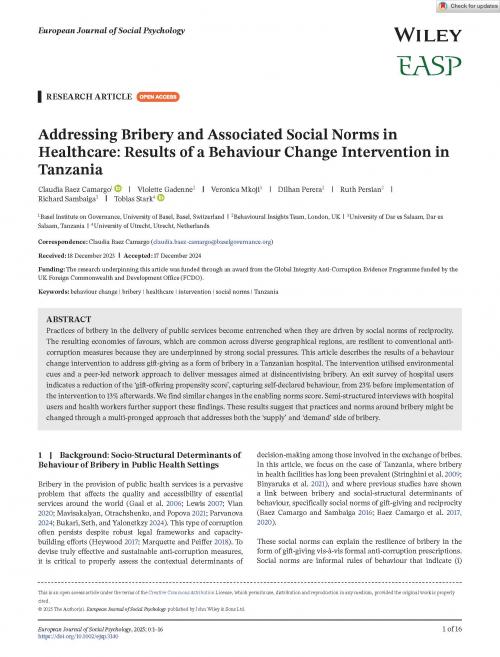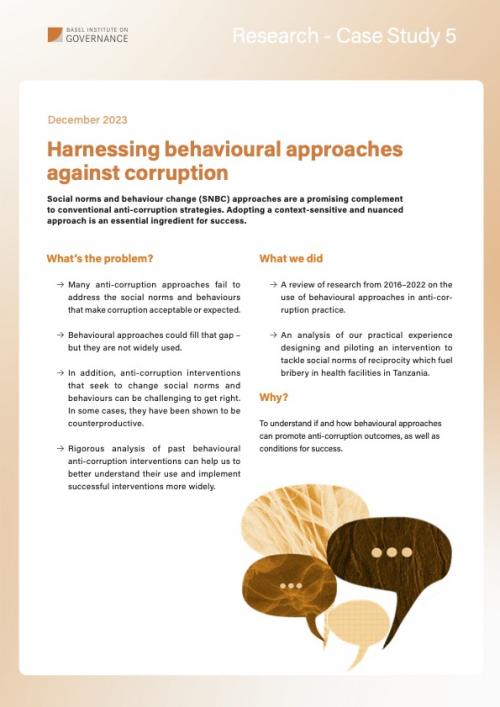Policy Brief 4: Social norms, mental models and other behavioural drivers of petty corruption – the case of Tanzania
This policy brief summarises the main findings and lessons learned from research on corruption, social norms and behaviours in Tanzania. While the findings show that petty corruption is prevalent and results in inequitable public service delivery, they also inform that citizen and public officials’ attitudes and behaviours towards corruption are shifting as a result of changes in the political environment.
The evidence furthermore suggests that the effectiveness of conventional anti-corruption approaches may be enhanced by incorporating behavioural insights about entrenched social norms and collective understandings that are associated with practices of bribery and favouritism.
About this Policy Brief
This publication is part of the Basel Institute on Governance Policy Brief series, ISSN 2624-9669.
It is licensed under a Creative Commons Attribution-NonCommercial-NoDerivatives 4.0 International License (CC BY-NC-ND 4.0).
Suggested citation: Baez Camargo, Claudia, and Saba Kassa. 2017. "Social norms, mental models and other behavioural drivers of petty corruption – the case of Tanzania." Policy Brief 4, Basel Institute on Governance.
Links and other languages




